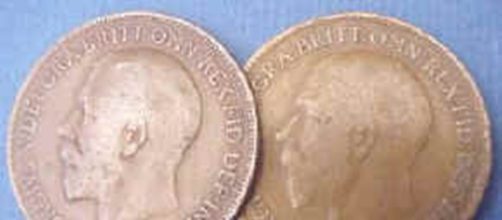The move by governments to eliminate cash as a means of trading goods and services is moving faster than we imagined. With another global financial crisis looming according to financial journalists and investment experts this is as understandable as it is undesirable for us ordinary punters. Having followed calls for the abolition of cash and claims of the "benefits" people will derive from granting control of their financial affairs to government and banks, I can confidently predict the phasing out of cash will benefit the capitalists and the power addicts and be detrimental to people who work for a living.
With China, and The IMF entering the "cashless society" call most recently, International Business Times reports that Norway - suffering from its own economic collapse as oil revenues crash, has joined Denmark and Sweden in a calling for citizens to recognise the benefits of a 'ban on cash'.Let's examine what the end of cash would mean to us. Why are governments so keen to ban cash? By limiting the use of cash financial authorities would be able to both restrict the amount we can spend and and limit what can be purchased, because every transaction would be electronic and therefore have to negotiate several software filters. Trond Bentestuen, a DNB executive, told Norwegian website VG:"Today, there is approximately 50 billion kroner in circulation and [the country’s central bank] Norges Bank can only account for 40 percent of its use.
That means that 60 percent of money usage is outside of any control. We believe that is due to under-the-table money and laundering,"To citizens of a democracy there be few more repugnant ideas than that bank or government bureaucrats thinking they should be able to control or regulate all movements of money in a free society. It isn't the bean counters or public servants money, it is our money to do with as we like once we have paid our taxes. If people do not grasp the enormity of what is being suggested here, they should think in terms of being told by a government inspector or the manager of a home improvements store what colour they can paint their walls. So why are governments so eager to ban cash and force all economic activity to go electronic?
And what would such a ban mean to account holders?Central Banks and government authorities are contemplating bail-ins (a levy is imposed on savings), negative interest rates (instead of the bank paying you interest on savings, you pay them for holding your cash) and hefty fees on movements of money. Governments are looking at a financial transfer tax on any movement of money between businesses and / or individuals. To make any of these plans work, the financial regulators need to close any opening savers and depositors might use in order to escape these legislated thefts. One of the traditional ways of escaping rapacious officials was to stuff cash in an old mattress, under the floorboards, behind the water tank in the attic and so on.
The escape hatch for those facing ruin from punitive taxes or fees on cash deposits is to hold physical cash. It is our opt out of a banking system based on fraud, and as such enables us to call bankers and governments to heel. In an all electronic money system, given the well known but little publicised flaws in internet technology, opting out, going financially off grid as it were, becomes impossible.Thus we are sold the idea that cash is a relic of an age when common people did not understand banking.
The more conventional answer to questions about this hostility to cash is that recession and reluctance of consumers to take on new debt result in households and enterprises hoarding cash instead of spending it. The solution to recession is thus to force the cash hoarders to spend their money.
RELATED POSTS:

